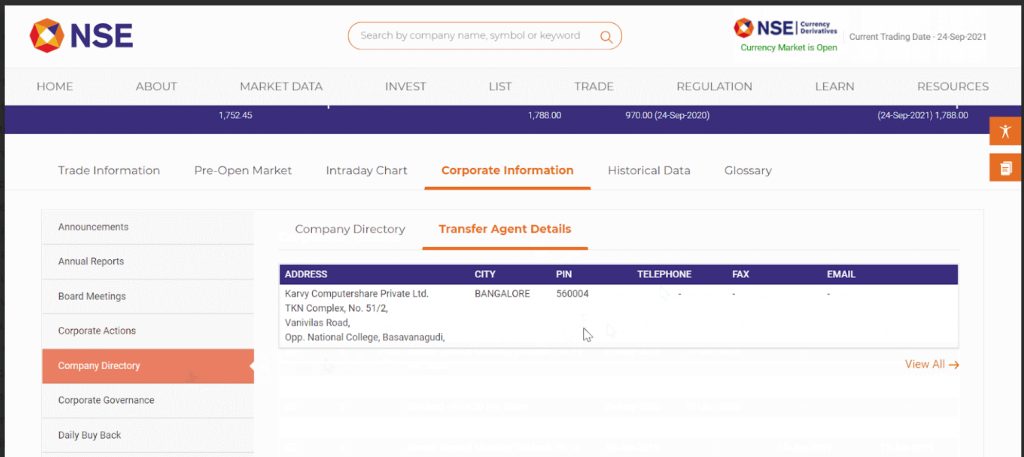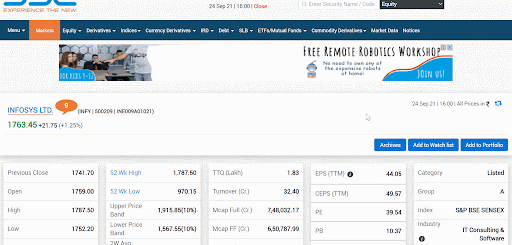
How to dematerialise physical shares?
The Bombay Stock Exchange (BSE), Asia’s oldest stock exchange, was established in 1875, marking a significant milestone in India’s financial history. With its inception, investors began receiving physical share certificates, representing company ownership. These certificates, tangible pieces of paper adorned with intricate designs, official seals, and company officials’ signatures, became symbols of one’s investment and ownership.
Fast forward to 1996, the Indian financial market underwent a transformative shift with the establishment of the National Securities Depository Limited (NSDL). It introduced the concept of dematerialisation. This new system allowed investors to convert their physical share certificates into electronic form, stored in demat accounts. Dematerialisation eliminated the risks of loss, theft, damage, and forgery associated with physical certificates. Today, India has two depositories, NSDL and Central Depository Services (India) Limited (CDSL), which oversee this process.
Securities and Exchange Board of India (SEBI) issued a press release on April 1, 2019, mandating the dematerialisation of shares if they need to be transferred.
To dematerialise physical share certificates, contact either a RTA (Registrar and Transfer Agents) or a broker. RTAs are SEBI-registered entities responsible for maintaining share registries and handling share transfers on behalf of companies.
On the other hand, stockbrokers are authorized agents of the depository and are called depository participants (DPs). DPs provide depository services, including dematerialising shares. Once your demat account is set up with a broker, request a Dematerialisation Request Form (DRF) from your stockbroker. Fill out the form and send it to the stockbroker with a self-attested copy of your PAN and the physical share certificates. Ensure that all details, such as the name, folio number, and certificate number on the certificates, match those on the demat account and forms. Any discrepancies can result in the rejection of the request.
The stockbroker then creates an online dematerialisation request using the depository portal and issues you a Dematerialisation Request Number (DRN), confirming the initiation of the process. The stockbroker forwards the DRF and certificates to the Registrar and Transfer Agents (RTA).
The RTA will verify all the documents and approve the dematerlisation request through the depository portal. The dematerialised shares will be credited to your demat account within 30 days.
Now, consider another scenario where you are a nominee of the deceased who held physical shares. In that case, you, as the legal heir or nominee, must contact the RTA to transfer the certificates to your name. This process is known as the transmission of shares. It can’t be initiated with the broker. Once the shares are transferred to your name, they can be dematerialised.
The RTA for a company can be found on the NSE and BSE websites:
- On NSE, visit nseindia.com, search for the company, click on Corporate Information, then Company Directory, and finally, Transfer Agent Details.

- On BSE, visit bseindia.com, search for the company, click on Corp Information, and scroll down to find the registrar’s details.

If the certificates were jointly held and one of the holders has passed away, the surviving holders can dematerialise the shares in their demat account. They need to request a Transmission-cum-Dematerialisation form from the stockbroker, fill it out, and submit it along with the DRF and a self-attested copy of their PAN.
To dematerialise jointly held physical shares, ensure the names on the demat account match the sequence on the share certificates. If they do not match, request a transposition form from your broker, fill it out, and submit it with the necessary documents. Note that certificates held in one person’s name cannot be dematerialised into a joint demat account.
Check with your stockbroker for charges associated with dematerialisation, transmission, and transposition. These charges can vary from ₹50 to ₹200 and may include additional fees.

I am a U.S. born citizen without any Indian heritage who bought shares in an Indian company 20 years ago that has become a public company on the Bombay Exchange. My dividend payments are being suspended and I wish to dematerialise my shares. Can you open a demat account to hold my shares and receive the dividends in Indian rupees.
Hi Robert, if you have a OCI/PIO status, you can open an NRI demat account (NRO or NRE). Before opening the account, you’ll need to check with the company’s RTA whether the physical shares can be dematerialized into an NRO or NRE demat and update the shareholder status accordingly.
Hi,
I have got a few shares of Jindal Vijaynagar Steel Ltd. and Prudential and Sterlite Industries, can you please explain the whole process for conversion into dematerialized form.
Thanks and regards
Hi Komal, we’ve explained the dematerialisation process here – https://support.zerodha.com/category/your-zerodha-account/transfer-of-shares-and-conversion-of-shares/dematerialisation/articles/how-do-i-convert-physical-share-certificates-into-demat-form
I have 36 shares each in Reliance Communication Ventures Limited and Reliance Energy Ventures Limited in physical format. I have demat account in Zerodha. Can these share be dematarealised here in Zerodha, if can what is the process. Please guide.
Thanking you
Banajit Bhattacharyya
9854056529
Hi Banajit, we’ve explained the dematerialisation process here.
Thanks